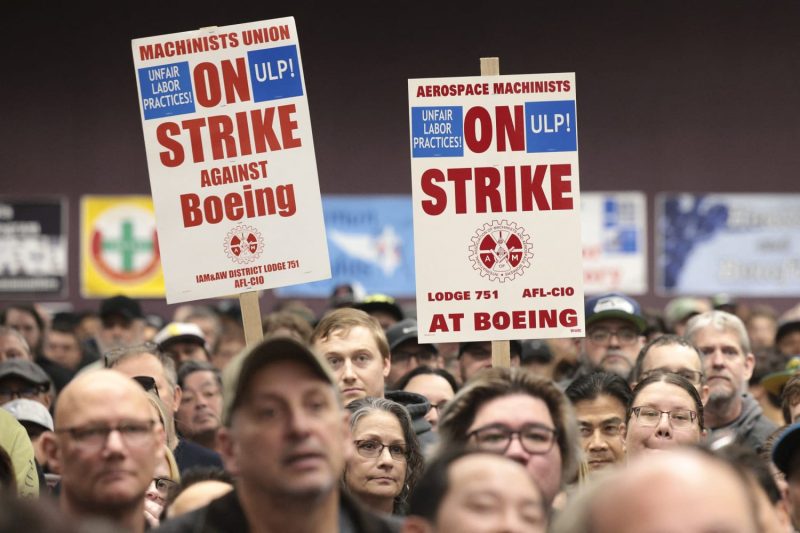Boeing Machinists Reject New Labor Contract, Extending Strike
The recent rejection by Boeing machinists of a proposed labor contract has fueled tensions and extended the ongoing strike, creating significant disruptions in the aerospace industry. This development highlights the complex dynamics between labor unions and large corporations, shedding light on the challenges faced by workers seeking fair wages and benefits amid changing economic landscapes.
One of the central issues in the rejected contract was the proposed changes to healthcare benefits. The machinists felt that the new terms would have been detrimental to their well-being, leading to a strong stance against the contract. Healthcare benefits are a critical aspect of any labor agreement, as they directly impact the livelihood and security of the workers and their families. By rejecting the contract, the machinists made a collective decision to prioritize their health and well-being, demonstrating their unity and determination to secure better terms.
The rejection of the contract also reflects broader concerns about job security and fair compensation. In an industry as competitive and fast-paced as aerospace, workers often face pressures to accept unfavorable terms in order to remain employed. The machinists’ decision to reject the contract sends a powerful message that they are not willing to compromise on their rights and dignity in exchange for job security. This act of solidarity underscores the importance of collective bargaining in safeguarding the interests of workers and balancing the power dynamics between labor and management.
Moreover, the rejection of the contract has significant repercussions for all stakeholders involved. Boeing, as a global aerospace giant, relies heavily on its workforce to maintain its operations and competitiveness. The extended strike resulting from the rejected contract creates disruptions in production schedules, affecting not only the company’s bottom line but also its reputation and customer relationships. The machinists, on the other hand, face uncertainties and financial hardships as the strike continues, highlighting the personal sacrifices and risks that workers often endure in pursuit of fair treatment and better working conditions.
In conclusion, the rejection of the labor contract by Boeing machinists exemplifies the challenges and complexities inherent in the relationship between labor and management. It showcases the power of collective action and solidarity in fighting for worker rights and dignity. As the strike extends and negotiations continue, both sides must engage in meaningful dialogue and compromise to reach a resolution that is fair and sustainable for everyone involved. Only through mutual understanding and respect can a harmonious and productive working relationship be achieved in the aerospace industry and beyond.
